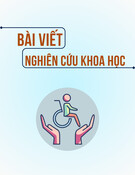
http://www.iaeme.com/IJMET/index.asp 660 editor@iaeme.com
International Journal of Mechanical Engineering and Technology (IJMET)
Volume 10, Issue 03, March 2019, pp. 660–672, Article ID: IJMET_10_03_069
Available online at http://www.iaeme.com/ijmet/issues.asp?JType=IJMET&VType=10&IType=3
ISSN Print: 0976-6340 and ISSN Online: 0976-6359
© IAEME Publication Scopus Indexed
IMPACT OF ECOLOGY ON OCCUPATIONAL
STRESS: A COMPARATIVE STUDY ON
POLICING IN TWO CITIES OF EASTERN INDIA
Deblina Majumder
School of Law, Kalinga Institute of Industrial Technology- Deemed to be University,
Bhubaneswar, Odisha, India
Dr. Arpita Mitra
School of Law, Kalinga Institute of Industrial Technology- Deemed to be University,
Bhubaneswar, Odisha, India
ABSTRACT
In India diversity spreads across different geographic, cultural and social
dimensions. The present study is an endeavour to explore the variance in the
relationship midst ecology, policing and occupational stress in the police
commissionrates of two cities of eastern India. This is an exploratory study conducted
on police personnel of police commissionerates of two cities namely, Bhubaneswar
and Guwahati. The study is a humble attempt to compare the impact of physical
factors and non-physical factors as elements of stress in the lives of police personnel
across the two geographically diverse cities. Generally, police personnel have always
been subjected to extreme stress and strain relating to their work environment. Owing
to the erratic work schedule, the police have experienced stress in varied garbs. A
stressful work environment can be the result of poor salary, increasing workload, less
scope of professional development and excessive work hours which ultimately affects
policing. Further there is also a sense of guilt for neglecting private life. The
immediate effect is ailments or life style diseases like high blood pressure, diabetes,
obesity and lack of concentration. In this study, out of the two cities, one is developed
coupled with cosmopolitan culture, known as an educational hub, and has transitional
population. The other is a developing one, amidst hills, shares international borders,
and has an active tourism these factors affect policing. The experiences of
occupational stress in the physical environments is different in the two cities, whereas
in the non-physical environment the experiences are similar. Everything lies in the
discernment, if one recognizes the situation to be tricky they will definitely suffer from
the same. It is fact that either one reacts or responds.
Key words: Ecology, Environment, Occupational Stress, Police personnel and Policing

Deblina Majumder and Dr. Arpita Mitra
http://www.iaeme.com/IJMET/index.asp 661 editor@iaeme.com
Cite this Article: Deblina Majumder and Dr. Arpita Mitra, Impact of Ecology on
Occupational Stress: A Comparative Study on Policing in Two Cities of Eastern India,
International Journal of Mechanical Engineering and Technology 10(3), 2019, pp.
660–672.
http://www.iaeme.com/IJMET/issues.asp?JType=IJMET&VType=10&IType=3
1. INTRODUCTION
Policing is the way in which the police works to maintain formal social control. Society
expects police “to protect and serve the people” [1]. Work is an extremely important for most
of the people. It plays a principal role in the health of people in general and happiness in
particular. The working environment has a huge impact on the well-being, decision making
process, and life style of individuals. This has attracted the attention of many scholars and
researchers [2]. The level of occupational stress is on phenomenal rise. Stress tends to show
lower productivity, or people are said to be under strain. [3] For police like other human
beings, stress affects their health, further this calls upon the productivity of the individual at
workplace i.e. policing. The erratic work schedules, relationships, instability in finances build
up stress in an individual. Police service is a highly reputable profession yet a strenuous one.
The stress and strain experienced in the course of policing is due to the environment in which
the police live or work. The present study compares the effect of occupational stress on
policing due to physical and non-physical environmental factors of two geographically
diverse cities of eastern India. This study is undertaken on the police personnel of Guwahati
and Bhubaneswar.
2. CONCEPTUALISING ECOLOGY, POLICING, AND
OCCUPATIONAL STRESS
Environment is a wider term, and ecology is a part of environment since it refers to the
interaction. Ecology, policing and occupational stress have been conceptualised in the
following ways:
Ecology deals with the interrelationships between organisms and their environment. It is
derived from the Greek word Oikos, which significances house. [4] Ecology here refers to the
physical ecology and non-physical ecology. Altogether ecology plays an important role in
contributing stress in a person’s life style. Police personnel are humans, even they are victims
of stress.It is a study of the households of the planet earth. [5] It provides an insight into the
functioning and conditions of ecosystems. [6] Ecology is the study of the interactions between
organisms and their environment. [7] A fascinating discipline where everyone is interested in
understanding the surroundings. [8] To streamline, human ecology refers to the
interrelationship between human beings and their physical environment. Environment means
the surroundings or the conditions in which person, animal or plants live in. [9] There are two
factors which directly influence the ecology: the physical and non-physical.
Policing: Police is the agency of the state which looks after crime control and law
enforcement. Policing is a set of activities directed at preserving the security of the
people. This aspect of preserving social order is not absolute but restricted. It is the act of
the police to maintain law and order. [10] Policing as a process, or a mode of social control is
older than the police institution i.e. it was introduced much before police. [11]
Occupational Stress: Stress is ambiguous despite several research. In 1974 Selye has pointed
out that stress is a scientific concept, which has a relative connection with physics. Stress can
be perceived as forces or stimuli encroaching upon the individual, which may create demands
on him/her. [12] The operational area of stress for this study is limited to the organization the

Impact of Ecology on Occupational Stress: A Comparative Study on Policing in Two Cities of Eastern India
http://www.iaeme.com/IJMET/index.asp 662 editor@iaeme.com
police personnel are members of. Most of the times it is regarded as a gap between
expectation and reality.
Police is a significant arm of the criminal justice administration. The present police
system in India owes its actuality to the Indian Police Act of 1861 which is a result of the
blend of British and Mughal police system. [14] Detection and prevention of crime, arresting
culprits, maintaining law and order are some of the functions of the police. These functions
are performed in the society, keeping the characteristics of that very society in mind. Since
Police in India is under the State List (Entry No. 2) of the Constitution of India for which the
State Governments have over all control over police and policing.
3. APPRAISAL OF RELEVANT LITERATURE
Every society has different ways by which it monitors the activities of its members in order to
ensure a safe and secure environment to live in. apart from having informal social control by
family, peer groups, religion, society also initiates formal means of control. In this regard law
enforcement agencies like the police toil day and night to give us a sense of safety and
security. Not only from natural calamities but also from social catastrophe like crime and
disorganization.
3.1. Ecology, Police and Policing
During 20th Century, human ecology grew up hard upon the heels of the development of plant
and animal ecology. It has contributed much knowledge on man’s relationship to physical
environment which surrounds him [14]. Human ecology is that division of sociology which
studies the link between human community and its environment [15]. Ecology is really an
extension of economics to the whole world of life. In the community it analyses causal
relations and synchronised understanding of constructive and destructive measures. [16] Yet
ecology is distinctly a new product, an outgrowth of modern science. [17] The term ecology,
which was first introduced by Haeckel in 1867, was supposed to denote the study of the
influence of the physical and biological environments on the behaviour and development of
organisms. [18] It provides an insight into the functioning and conditions of ecosystems [19]
and also the relationships between microphysical environment and the behaviour of man [20].
Ecology is the study of the interactions between organisms and their environment
Police in the course of policing comes in interaction with the environment. As stated
earlier, environment is the genus and ecology the species. So the physical environment can be
subdivided into: the natural environment (places or topographical features) and built
environment (people’s modification of environments). The physical environment reins the
physiological functioning of the human body, the choice of occupations, the consumption
habits, the content of the mind, and all the many and kaleidoscopic systems of human
behaviour-political, religious, philosophical, scientific and so on [21].
Ecology can be of many types, habitat, auto-ecology, population ecology, community
ecology. This concept of ecology can also be construed as the environment within which an
individual is living and interacting. As far the police personnel are concerned, once they are
selected to be in the service, they start living a different life. Most of their time is being spent
while being on duty. Their life revolves around patrol, investigation and paperwork. The
police is considered to be the first line of defence between the perpetrators and the prospective
victims. This kind of life is stressful to its core. It is often found that police personnel are
rigid, authoritarian, and suspicious, bears an image of power and toughness. Sometimes the
expectations of the people towards police creates a lot of pressure on them. This in return
turns out to be a stressor.

Deblina Majumder and Dr. Arpita Mitra
http://www.iaeme.com/IJMET/index.asp 663 editor@iaeme.com
Police and policing are two different concepts, police has been derived from the word
politeia, which means every matter that affects the existence and welfare of the State
(polis).[22] It is considered to be a functionary of the state. The primary function is to
maintain law and order, prevention and detection of crime. Policing is referred as the manner
in which police exercises social control. Police are faced with a lot of dilemma; their character
requires that they adequately bring stability in the legal authority they have been given by the
public through the government, with their accountability to protect individual rights and add
to public safety. They have the authority to stop, detain, enquire, arrest, and also use deadly
physical might when necessary. Under the adage of community policing, police patrol
operations emphasises not only on enforcement activities but also on crime prevention while
addressing the root causes of crime and disorder. [23]
Police as a functionary of the criminal justice administration has a crucial role to play in
maintaining peace and enforcing the law and order within the jurisdiction assigned to it.
Police, in India, has come into existence in one form or another from the ancient times. The
reference of police has even been mentioned in mythological books like Ramayana and
Mahabharata. Manu, in his book Manu Smruti, gave emphasis to the need of a force which
would maintain law and order. The responsibility of the police is to maintain law and order, to
prevent and detect crime, investigation. This further includes all other duties like regular
patrolling, to look after internal security, to protect, preserve and promote human rights as
well. While performing all such duties police personnel suffer from police burn out. At the
end of the day one cannot ignore the fact that police, too is a human being.
3.2. Policing, Occupational Stress and its implications
Stress is a normal phenomenon in everyone’s life. It is the way in which the body responds to
threats and demands [24]. Occupational stress circumstances are those in which features of, or
events linked to, the workplace lead to a person’s ill health or welfare. These environmental
job conditions are often labelled stressors, and the employees’ reactions have been labelled
strains. [25]
In studies relating to policemen and their lives it has been found out that the family life of
policemen warrant more attention than they generally receive. A heavy toll is demanded from
the spouses (especially wives of the policemen), their children and their relatives by the
stressful facets of police work. Prolong nagging of family members, the disrupting effects of
unbalanced work pattern on family centred activities, promiscuity, school and other
adjustment difficulties among their children are a heavy price levied by the police kinfolk.
Changing work schedules, passionate enervation, deleterious public image, over protecting
the “better half” and kinfolk, inurement of emotions, and identity problems are inherent in the
career of law enforcement. Strife in marriage and family, coupled with discord and unresolved
emotional glitches may create a negative influence on the effective performance of police
personnel. It has also been observed that problems and frustrations relating to office are often
carried home. Conversely a displeased life at home can negatively affect the development and
motivation to work better and deal well with public. Stress experienced by their significant
other is a concern in itself since a stressful environment at home can adversely affect police
personnel’s job performance. Also conditions, situations, or incidents that may not distress the
officers themselves or that they may even like (such as shift work or undercover work)-can
mean unembellished problems for their families.
The social environment or ecology of a human being is influenced by two broad factors,
namely work related factors and individual factors. The work related factors are mostly the
ones which are influenced at the environment in which the person works, i.e. the operational
environment which includes poor management, poor salary, insufficient or broken equipment,

Impact of Ecology on Occupational Stress: A Comparative Study on Policing in Two Cities of Eastern India
http://www.iaeme.com/IJMET/index.asp 664 editor@iaeme.com
excessive over time, frequent rotating shifts, and regular changes in duties as the major
contributors of stressors. The individual factors are the ones which the individual experiences
outside the work environment. It embraces family and relation problems; financial or
economic problems, and health issues.[26] Although financial or economic problems are
mostly arising out of poor salary of an individual but this generally creates frustration among
the individuals which might lead to corrupt practices in police personnel particularly.
Police personnel experience stress for several other reasons apart from the ones mentioned
above. Stressors present at the operational environment can be more like a constant exposure
of the police to people suffering from distress and pain; there is a continuous fear of officer’s
safety, security and health; the concern to protect the lives of the citizens and to maintain law
and order; keep a persistent control over emotions even when provoked innumerable times.
4. OBJECTIVES OF THE STUDY
The study has dual objectives:
To compare occupational stress experienced due to physical ecology factors in policing two
diverse cities.
To compare occupational stress experienced due to non-physical ecology factors in policing
two diverse cities.
5. THEORETICAL PERSPECTIVE ON ECOLOGY, OCCUPATIONAL
STRESS AND POLICING
Lazarus Theory has been taken as reference while discussing stress in the lives of the police
personnel with respect to the operating environment and the environment at home. Richard
Lazarus, the profounder, has said that stress is a reciprocal process; it includes the creation of
stressors by the environment, and also the reaction of a person who is exposed to these
stressors. This brought about the theory of cognitive appraisal. He highlighted on the fact that
it is individual’s awareness about the stressors in his environment that generates the stress in
him. It is more psychological than physical. It is neither the environmental event nor the
individual’s response which defines stress, but the person’s perception of the psychological
condition which is the critical factor. Lazarus meant that the effects that stress has on an
individual is grounded further on that person’s feelings of risks, vulnerability and capability to
cope than on the stressful event itself. He describes psychological stress as a "particular
relationship between the person and environment that is appraised by the person as taxing or
beyond his or her resources and imperilling his or her wellbeing." Primary Appraisal - When
we decide if a situation is threatening or positive, relevant or irrelevant to our situation. There
are three things needing to be evaluated, is it the danger significant to that person, or an
optimistic encounter, or intimidating/injurious/stimulating/threatening.
If a person decides that the condition is intimidating the following may arise: rage, injury,
illness, anxiety, disgust, disappointment, a fear response, a challenge or anticipation.
Secondary Appraisal - When one measures what resources are accessible to one to help
combat or cope with the stressor. He may choose to utilise his inner options like inner
strength, inner strength, or exterior options: peers, professional help. The theoretical and
empirical literature proposes that occupational stress is not a characteristic of either
environment or individual, but is the result of the interaction of these two main categories.
Lazarus (1971) accentuated that it is an individual's sensitivity of a situation, referred to as the
"cognitive appraisal," that describes that situation as stressful: the individual's response
depends on the appraisal. The appraisal may conclude the result to be harmful, disgusting or
challenging [27].













![Sổ tay Hướng dẫn truyền thông về lao động trẻ em [Mới nhất]](https://cdn.tailieu.vn/images/document/thumbnail/2025/20251114/kimphuong1001/135x160/7201763091001.jpg)







![Cẩm nang Thanh niên hành động [Mới nhất]](https://cdn.tailieu.vn/images/document/thumbnail/2025/20251017/kimphuong1001/135x160/1521760665202.jpg)




